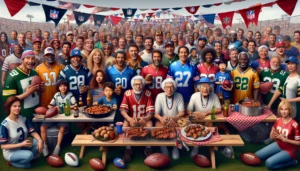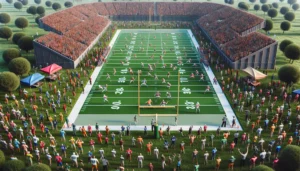Key Takeaways
- Rigging Allegations Persist in the NFL: Claims of biased officiating, dramatic game outcomes, and financial motivations fuel suspicions about the league’s integrity.
- Historic Controversies Add to Doubts: Scandals like “Bountygate,” “Deflategate,” and infamous no-calls in key games intensify fan skepticism.
- Factors Behind Rigging Theories: Critics point to questionable referee decisions, massive financial interests, and the league’s focus on entertainment value as potential evidence of manipulation.
- Analyzing Claims vs. Evidence: While statistical anomalies and whistleblower testimonies support rigging theories, much of the evidence remains circumstantial.
- Counterarguments Highlight Practical Challenges: Human error, the NFL’s commitment to transparency, and the logistical complexity of rigging an entire league counter these allegations.
- Debate Continues Among Fans: Despite the lack of conclusive evidence, the idea of NFL manipulation remains a hot topic, driven by controversial moments and fan frustrations.
I’ve heard it countless times—friends, fans, and even commentators tossing around the idea that the NFL might be rigged. It’s a question that sparks heated debates, especially after a controversial call or a game that feels too perfectly scripted. I mean, who hasn’t wondered if there’s more to the story when their team loses in a way that just doesn’t sit right?
The NFL is one of the most-watched sports leagues in the world, so it’s no surprise that conspiracy theories swirl around it. From questionable officiating to suspiciously dramatic endings, some moments make you stop and think, “Could this really all be planned?” Whether you’re a die-hard fan or a casual viewer, it’s hard not to get curious about the possibilities. Let’s dive into the arguments, theories, and evidence people bring up when they question whether the NFL is as genuine as it seems.
Understanding The Debate: Is The NFL Rigged?
Allegations of NFL manipulation often center on biased officiating. Critics argue that questionable calls, like missed pass interference penalties or controversial roughing-the-passer decisions, can alter a game’s outcome. Such instances ignite conversations about referees favoring certain teams or players.
Claims of the league scripting games stem from dramatic, story-like conclusions. Examples include improbable comebacks or sudden upsets during high-stakes games. Skeptics believe these moments are designed to boost television ratings and fan engagement.
Financial interests also fuel suspicions. With annual revenue exceeding $18 billion, some suggest the NFL benefits from teams with large market followings advancing further in the postseason. Matches featuring popular franchises or star players often draw higher viewer numbers.
While supporters of these theories highlight patterns and anomalies, evidence remains circumstantial. The debate continues as fans examine every call, play, and outcome for signs of manipulation.
History Of Controversies In The NFL
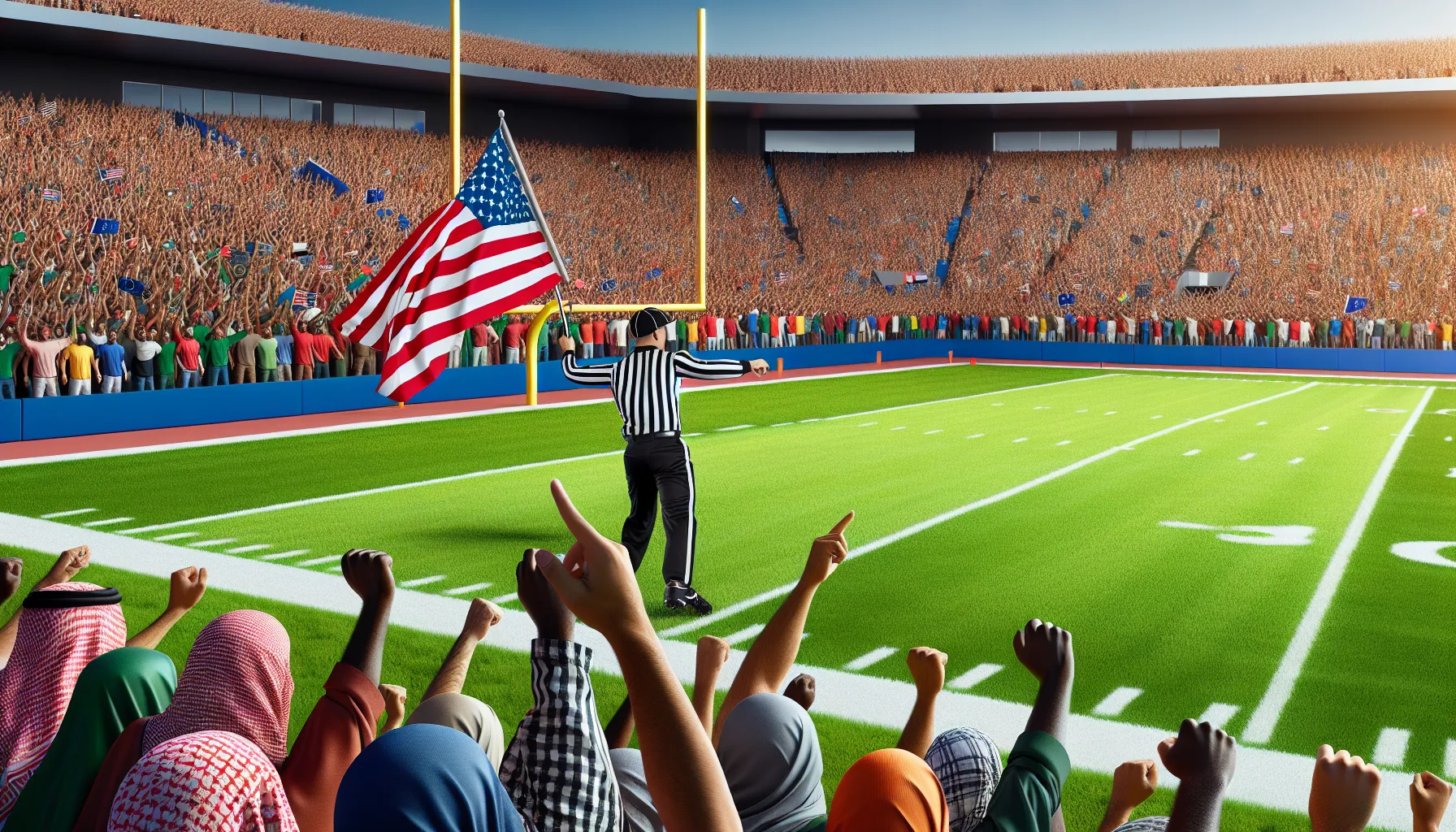
The NFL has faced numerous controversies over its history, sparking debates about the league’s integrity. From officiating scandals to accusations of game manipulation, these instances have fueled speculation among fans and critics.
Notable Scandals And Allegations
The “Bountygate” scandal in 2009 revealed that New Orleans Saints players were given cash bonuses for injuring opponents, violating league rules. This led to player suspensions, fines, and a tarnished reputation for the team.
In 2015’s “Deflategate,” the New England Patriots were accused of tampering with footballs during the AFC Championship Game. Investigations resulted in a four-game suspension for Tom Brady and fines for the team.
The 2018 NFC Championship Game became infamous for a no-call on a blatant pass interference, which many argued cost the New Orleans Saints a Super Bowl appearance. This incident reignited concerns over inconsistent officiating.
Past Accusations Of Game Fixing
Allegations of game fixing trace back decades, including suspicions in Super Bowl III. Critics argued that the NFL might have encouraged the New York Jets’ victory to boost the merger’s credibility between the AFL and NFL.
In 2002, the “Tuck Rule Game” between the Patriots and Raiders raised questions due to a controversial call that reversed a fumble, aiding the Patriots’ playoff advancement. Many perceived the decision as advantageous to the league’s popular narrative.
Some suggest specific games are influenced by officiating biases, such as the 2006 Super Bowl XL, where penalties heavily favored the Pittsburgh Steelers over the Seattle Seahawks, prompting claims of unfair treatment.
Factors That Fuel The Rigging Claims
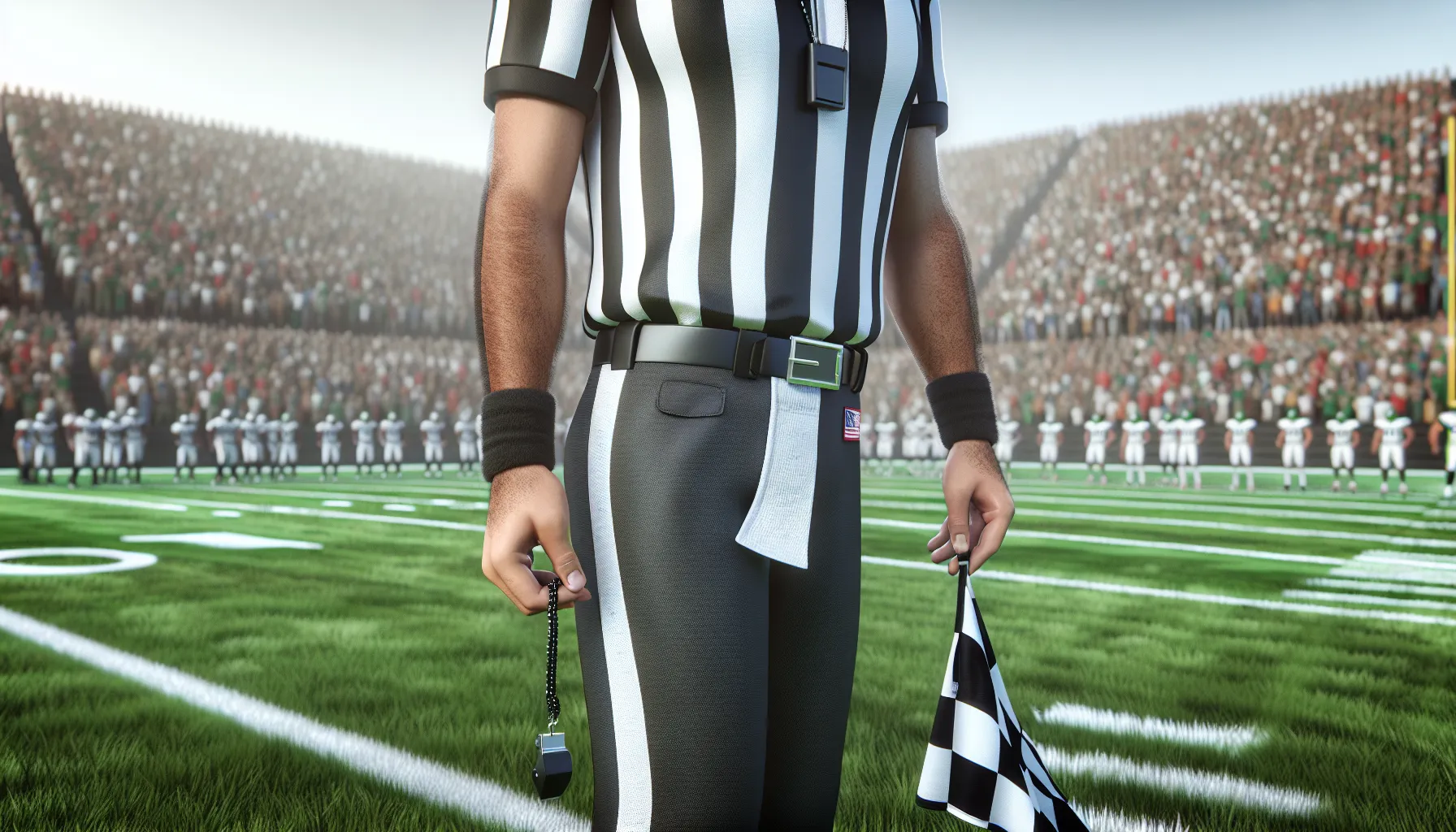
The idea of the NFL being rigged often stems from perceived patterns and anomalies in game outcomes. Several factors are cited by skeptics to support these claims.
Referee Decisions And Bias
Referee decisions often spark rigging accusations. Critics highlight controversial calls, non-calls, and penalties that impact crucial moments. High-profile examples, like the no-call in the 2018 NFC Championship Game, fueled questions about officiating consistency. Skeptics argue that seemingly biased decisions favor popular teams or players, possibly driven by league interests. Missed calls and overturned plays with questionable justification add to these concerns, especially in high-stakes games.
Influence Of Big Money And Betting
The NFL’s multi-billion-dollar revenue and growing sports betting market add to the debate. Critics suggest financial interests might influence outcomes to maximize revenue. Popular teams making the playoffs, dramatic game finishes, or tightly contested matchups could boost ratings and betting activity. The rise of legalized sports betting, involving massive financial stakes, amplifies suspicions. Skeptics claim the league might indirectly benefit from keeping games suspenseful for higher betting engagement.
Media Narratives And Entertainment Value
The NFL thrives on creating compelling storylines that captivate fans. Dramatic comebacks, underdog victories, or controversial finishes often draw major attention. Some believe the league might craft these narratives to enhance fan engagement and increase television ratings. Claims that the NFL structures game outcomes to align with marketable storylines, such as a star player’s redemption arc or historic team rivalries, persist among detractors. This focus on entertainment value over fair competition raises doubts about the league’s integrity.
Analyzing The Evidence
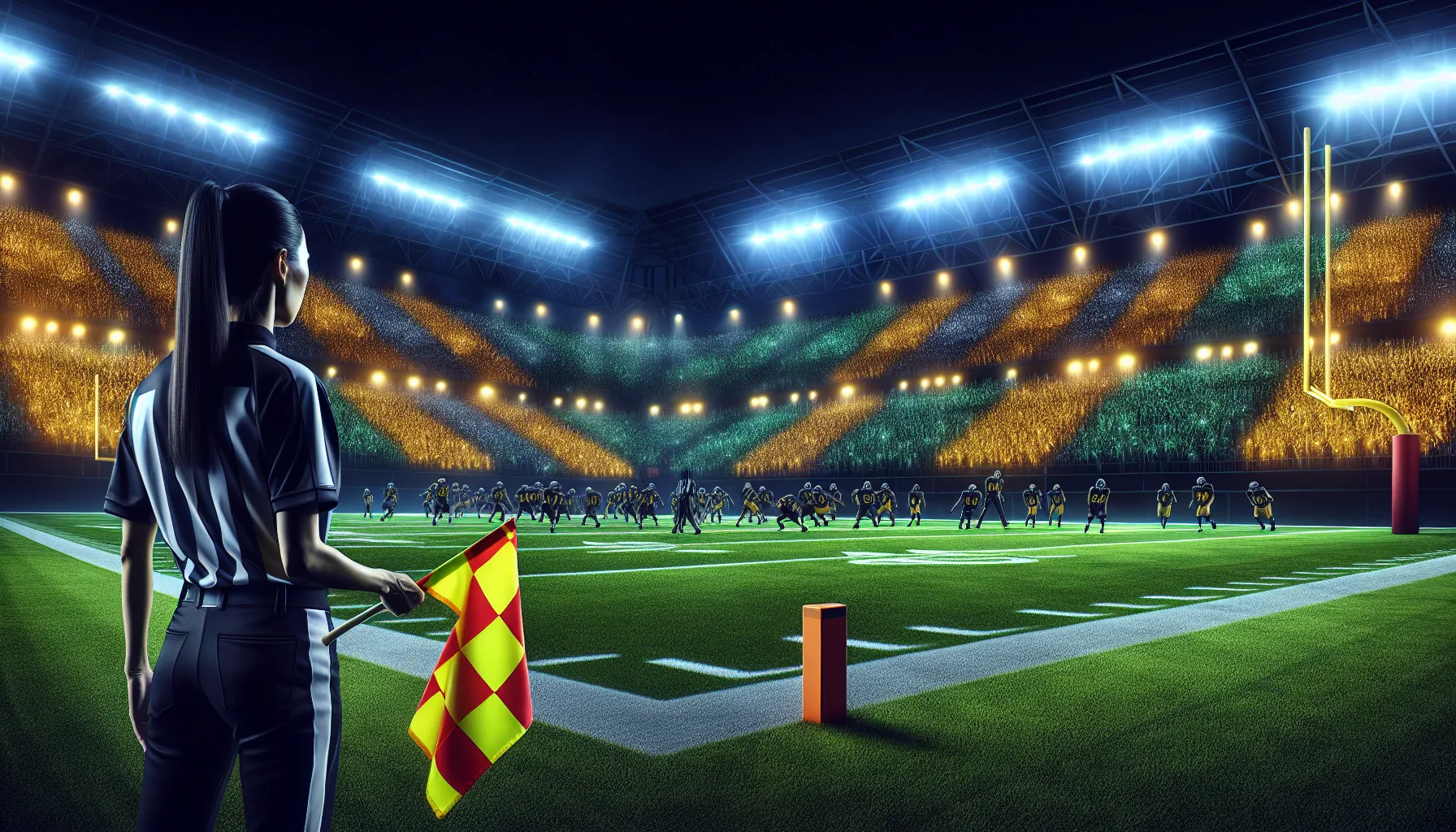
Examining claims of a rigged NFL reveals a mix of statistical anomalies, insider testimonies, and contested game outcomes. Each offers insights into the broader debate about the league’s integrity.
Statistical Anomalies And Trends
Patterns in team performances and penalty statistics have prompted questions about fairness. For example, the 2020 season saw the Baltimore Ravens flagged 101 times, the second-highest in the league, compared to the Green Bay Packers’ league-low 58 penalties. Close inspection of these disparities often suggests potential favoritism or targeted enforcement. Additionally, postseason games frequently display ratings-friendly contests with dramatic finishes, sparking speculation about orchestrated competitiveness. Data trends, especially those aligning with fan-favorite teams’ successes, feed these suspicions.
Whistleblower Accounts And Testimonies
Insiders have occasionally fueled rigging allegations. Former players like Dwight Smith, a Super Bowl-winning NFL cornerback, publicly claimed suspicions about games being predetermined to benefit the league. Jerry Markbreit, a retired NFL official, asserted in interviews that no intentional game-fixing had occurred from his perspective, though he acknowledged the relentless public scrutiny of officiating. These conflicting narratives emphasize the secrecy surrounding potential manipulations, leaving room for debate.
Unexplained Calls And Game Outcomes
Certain officiating decisions have become focal points in the rigging narrative. The no-call on defensive pass interference in the 2018 NFC Championship Game left many questioning whether officiating biases influenced the outcome. Controversial incidents like the 2002 “Tuck Rule Game,” where a last-minute reversal benefited the New England Patriots, further amplified public suspicion. While the league categorizes many such calls as human error, their frequency in high-stakes games leads fans to wonder if such moments are coincidental or deliberate.
Counterarguments To Rigging Claims
While speculation continues to surround the integrity of the NFL, there are several challenges to the idea that the league is rigged. Examining the league’s perspective and practical constraints offers insight into why many dismiss these claims.
The NFL’s Official Stance
The NFL has consistently denied allegations of rigging or predetermined outcomes. League representatives emphasize their commitment to fairness through strict rules, advanced replay technologies, and extensive training programs for officials. They argue that, given the league’s wide audience and transparency requirements, manipulating outcomes would severely damage its reputation and profitability.
The league’s rulebook and collective bargaining agreements with teams are publicly accessible, adding another layer of accountability. Any evidence of manipulation would face intense scrutiny as countless media outlets and independent analysts review every detail of games.
The Role Of Human Error
Mistakes from officials are often cited in rigging claims, but they align with the imperfections of human decision-making. Even with tools like instant replay, the fast-paced nature of the game makes some errors inevitable. For example, referees must interpret complex rules in seconds amid rapidly changing plays on the field.
Fan frustration with high-profile errors, like the missed pass interference in the 2018 NFC Championship Game, often sparks conspiracy theories. However, calling these errors intentional ignores the extensive processes in place to evaluate officiating performance. The NFL even penalizes underperforming referees by downgrading their postseason eligibility.
The Complexity Of Coordination
Rigging an entire league would demand an unrealistic level of secrecy and coordination. The NFL involves over 1,700 players, 32 teams, hundreds of league officials, and millions of unaffiliated observers, making it nearly impossible to conceal manipulation. Credible whistleblowing would likely emerge if such activities existed.
With every play, analysts, statisticians, and media experts scrutinize the game. Players, coaches, and officials work under intense public and internal oversight. Maintaining a league-wide conspiracy would require complicity from thousands of stakeholders, an impractical scenario given the high-stakes environment of professional sports.
Conclusion
Whether the NFL is rigged or not remains a hotly debated topic, and honestly, it’s easy to see why emotions run high on both sides. The passion fans have for the game fuels these discussions, especially when controversial moments leave us questioning what’s really happening behind the scenes.
At the end of the day, football is unpredictable, messy, and full of human error—that’s part of what makes it so exciting. While theories and suspicions will likely continue, the love for the game keeps us all coming back, no matter where we stand on the debate.
Frequently Asked Questions
Is the NFL rigged?
There is no concrete evidence proving the NFL is rigged. While fans and critics often cite controversial officiating and dramatic game outcomes to support these claims, the league maintains that games are fair and outcomes are not predetermined. Human error in officiating and the unpredictable nature of sports contribute to this ongoing debate.
Why do some people believe the NFL is rigged?
Theories about the NFL being rigged stem from instances of questionable officiating, dramatic game finishes, and potential financial incentives like increased ratings and betting revenue. High-profile incidents, such as the no-call in the 2018 NFC Championship Game, have fueled these suspicions.
Has there been any proof the NFL scripts games?
No substantial proof has been presented that the NFL scripts games. Allegations are mostly based on circumstantial evidence, including patterns in penalties, unexpected outcomes, and insider speculation, but no concrete evidence has surfaced to confirm game scripting.
What are some controversies linked to NFL rigging accusations?
Notable controversies include “Bountygate,” “Deflategate,” and the no-call in the 2018 NFC Championship Game. Incidents like the “Tuck Rule Game” and alleged biases in officiating have further intensified concerns about fairness and manipulation.
Why would the NFL manipulate outcomes?
Skeptics suggest the NFL might manipulate outcomes to enhance TV ratings, boost fan engagement, and maximize revenue, especially during playoffs. Tight games and surprising results are thought to generate more viewership and drive higher betting activity.
What does the NFL say about these allegations?
The NFL denies all rigging accusations, asserting that games are fair and outcomes are not predetermined. The league emphasizes its use of advanced replay technology, comprehensive training for officials, and strict rules to ensure integrity.
Could human error in officiating explain suspicious calls?
Yes, human error is a natural part of the game. NFL officiating is fast-paced and complex, making mistakes inevitable. While some errors have had significant impacts, they are not necessarily evidence of rigging.
How hard would it be to rig NFL games?
Rigging NFL games would require immense secrecy and coordination among players, coaches, officials, and league personnel. Critics argue that maintaining secrecy among thousands of stakeholders is virtually impossible, making conspiracy theories less plausible.
Has the NFL’s integrity ever been questioned before?
Yes, the NFL has faced scrutiny in the past with scandals like “Bountygate” and “Deflategate.” These incidents sparked debates about fairness but did not confirm any wide-scale rigging of games.
Are betting trends a sign of NFL manipulation?
Some argue that betting trends and revenue could incentivize manipulation, but there’s no conclusive evidence. Suspicious patterns in odds or results are often circumstantial and don’t definitively prove games are altered for financial gain.

